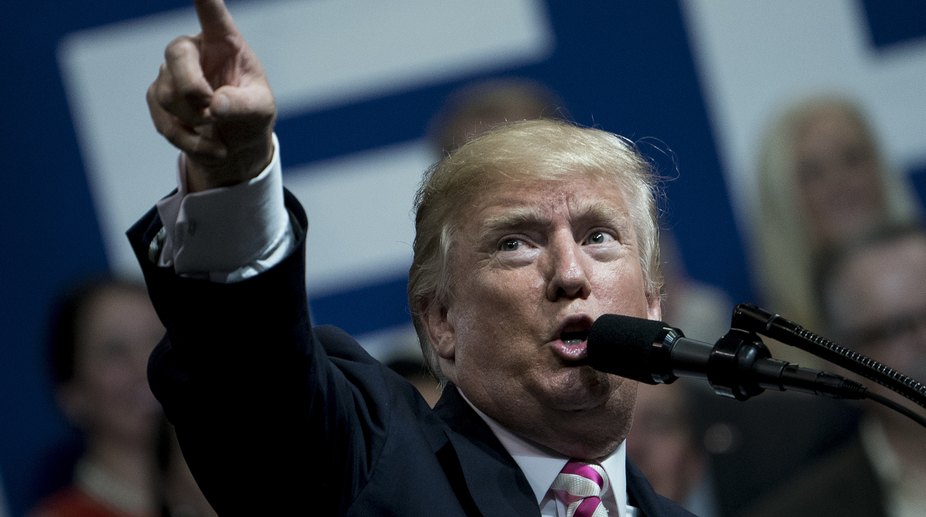US President Donald Trump has issued a new order banning almost all travel to the country from seven nations, including North Korea and Chad, saying that the citizens of these countries pose a threat to the US national security.
According to a New York Times report on Sunday, the new order is more far-reaching than the President’s original travel ban, imposing permanent restrictions on travel, rather than the 90-day suspension that Trump authorised soon after taking office.
Advertisement
From the next month, most citizens of Iran, Libya, Syria, Yemen, Somalia, Chad and North Korea will not be allowed in the US, Trump was quoted as saying.
Also, Iraqi citizens and some groups of people in Venezuela visiting the US will face heightened scrutiny.
Earlier this year, Trump’s original travel ban evoked widespread criticism and caused chaos at airports. The order expired on Sunday and the Supreme Court is set to hear arguments about its constitutionality next month.
The new order will take effect October 18.
“As president, I must act to protect the security and interests of the US and its people,” Trump said.
According to the officials, the new order is more targeted effort than the President’s earlier one.
“Each of the countries will be under its own set of travel restrictions, though in most cases citizens of the countries will be unable to emigrate to the United States personally and most will be barred from coming to work, study or vacation in America,” the report noted.
Trump restricted only the travel of government officials and their families in Venezuela, saying the ban was focused on that group because they were “responsible for the identified inadequacies” in sharing information about travelers.
“This is an apparent effort to paper over the original sin of the Muslim ban, especially when just last week Trump said he wanted a ‘larger, tougher, more specific’ ban,” said Anthony D. Romero, the executive director of the American Civil Liberties Union.
Unlike the earlier travel ban, officials said the new policy was the result of months of deliberation with State Department, the Department of Homeland Security, the White House and other agencies responsible for security and the border.











